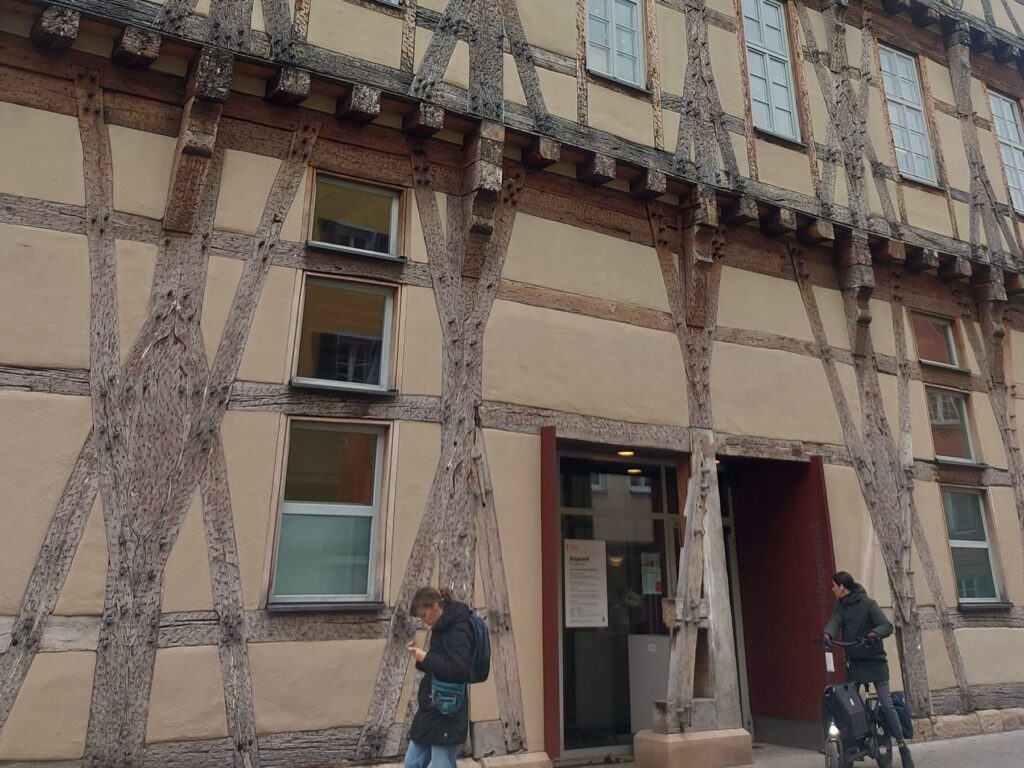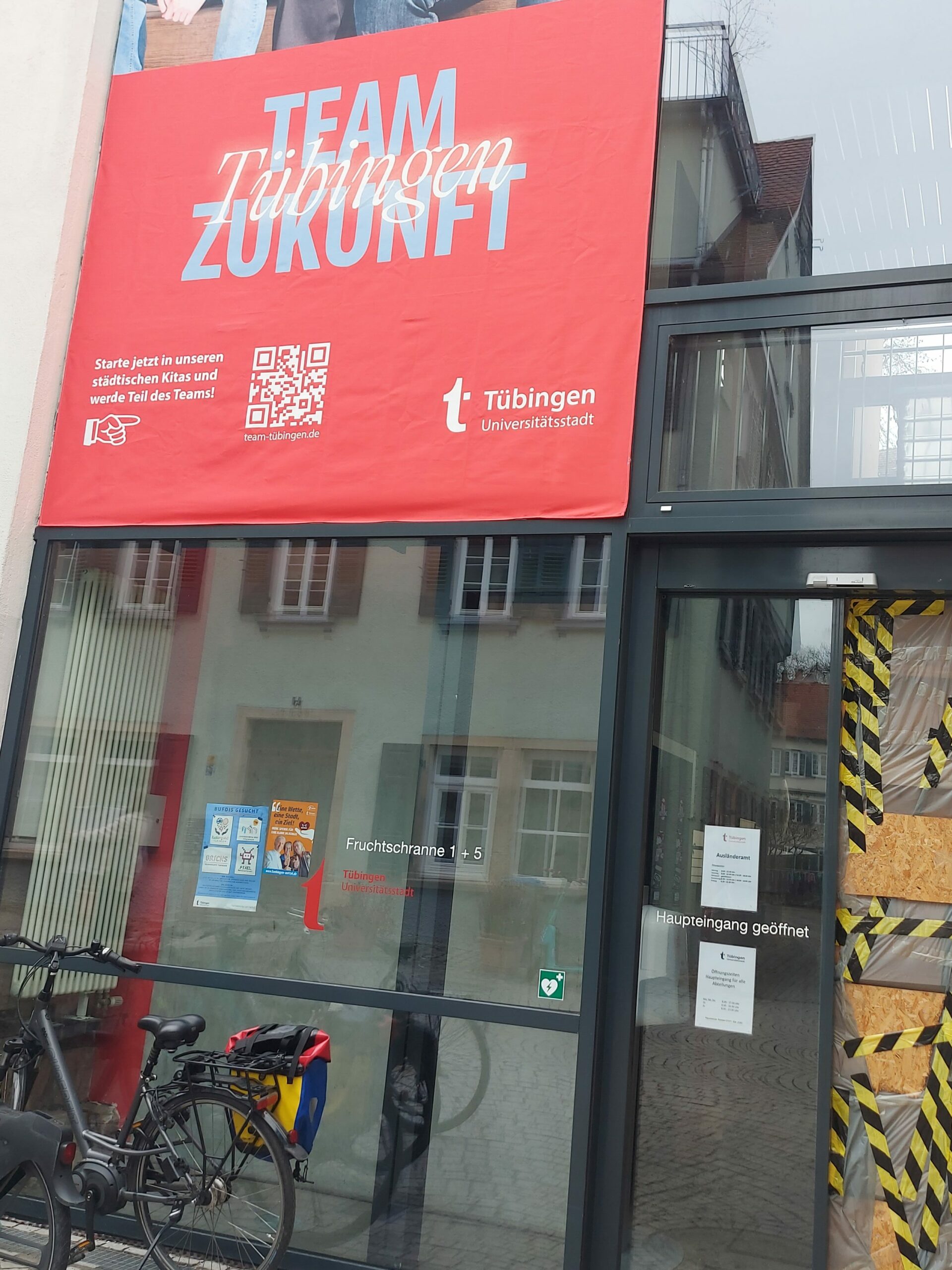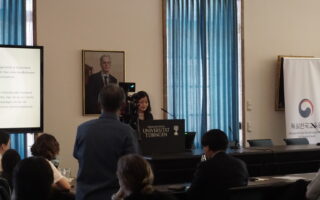The German Bureaucracy system can be difficult to navigate for international students. This article will act as a guide on how to gain your residence permit. Our editor provides her advice and experiences to try and help other students in the same situation.
Moving to another country whether permanent or temporary is already overwhelming without having to learn to navigate entirely new bureaucracy. And as an international student who recently finished the temporary residency process, I hope that this article will help to make the first steps a little easier to understand for others going through the same thing. I will explain the process as well as offer my recommendations on how to streamline the process.
Step One: Registering your residency in Tübingen
The first thing that every student must do, both German and International, is to register their residency with the city of Tübingen. The guidelines state that you should do this within your first two weeks of arrival in Germany. However, due to the large number of students who arrive within a short period of time they acknowledge that this is not always possible. You should take the earliest appointment available to you within the system. My main suggestion would be to book your appointment date in advance once you know what day you will arrive in Tübingen. It is also important to note that you must de-register with the city before you leave Germany.

Registering with the city is straightforward once you have secured an appointment, but you will need to have at least partially moved into your accommodation beforehand. This is because you require a confirmation of residence form called a ‘Wohnungsgeberbestätigung’ that will be signed by your landlord. If you are living in the University accommodation (which I would strongly advise) you can collect the form when you go to the Hausmeister (caretaker) to pick up your keys. If you are living in private accommodation you can request this form from your landlord.
Once you have this form you can take it with you to your appointment alongside a form of ID – as an international student you will need a passport or European ID, and then you can be registered with the city. This is done at the Bürgerbüro Stadtmitte building which is about a fifteen minute walk from the main university buildings. If you are an EU citizen you can likely stay without further visas or requirements for the duration of your time abroad. I would advise double checking this applies to you with this website.
Applying for a Residence Permit as a Non-EU Citizen
If you are not a European citizen but were able to enter without a visa, you will still need to apply for a residence permit from the foreign office in Tübingen in order to stay longer than 90 days within the Schengen area. Please note that the 90-day limit includes any time spent in the Schengen area within 180 days of your arrival date. Therefore, even if you arrive in Germany in September or October, any time you spent in the Schengen area during the summer — even if it was not in Germany — will still count towards your 90-day limit.
You can apply for up to a year at a time for the residence permit and have it extended if required (this only really applies to degree seeking students rather than those on an exchange semester or year). You register for the residence permit at the Ausländeramt which is just around the corner from where you register with the city.

The application process for the residence permit varies slightly based on which country you hold citizenship in, so my process as a British citizen may not be identical to what you are required to do. However, you must apply for a residence permit within the first ninety days of your stay. If you have not received your full residence permit before the ninety days expires you are permitted to stay in Germany but you will not be able to leave Germany until you have received it. My suggestion would be to apply for your residence permit as soon as you have registered with the city because it may take longer than the projected four to six weeks. And if you have plans to travel after your ninety days expires you will need the permit to be able to return to Germany and move around the Schengen area without restrictions.
Step two: Providing financial proof for the residence permit
If you are a non-EU citizen you may have already been asked to prove your financial status for the visa application. However, if you were able to enter Germany without a visa, you may still be required to prove you have the required funds for the duration of your trip. This applies to citizens of Andorra, Australia, Brazil, Canada, El Salvador, Honduras, Israel, Japan, Monaco, San Marino, New Zealand, the Republic of Korea, the United Kingdom, and the USA. One way of doing this is through a blocked account that you may have opened as part of the visa process. This is an account with a set amount of money which cannot be accessed until you arrive in Germany.
Aside from the blocked account there are other ways to prove finances for the residence permit. If you receive a scholarship or student loans these can be used to prove you have financial means provided they are the required amount of €11.208 for a year or €5.604 for a semester. A lot of people do recommend opening a blocked account, but it can sometimes be difficult outside of Germany or finding ones that speak English. Make sure to research all your options before deciding.

It is also possible to have a permanent resident of Germany or a parent or guardian to act as financial proof on your behalf but as this is something I did not do I feel unable to offer adequate advice on this topic. Because some of the information online about the financial means you can prove is a little vague, I would recommend contacting the foreign office in person or by phone if you have any questions. Additionally, although some countries may not require financial proof, I would still advise opening a German bank account for ease when studying abroad. They can prove useful in paying for rent or train tickets which may require a bank account that supports SEPA (Single Euro Payment Area).
Step four: Biometric appointment and paying for the permit
Another thing I would recommend is choosing an email that you regularly check for the application as most of the information and appointments will be sent via email and you do not want to miss anything important. Once your application has been approved, which usually takes a few weeks, you will receive an email inviting you to come in for an appointment to register your biometrical details, provide a photo and pay for the permit. The biometric passport photo (32mm x 36mm) can be prepared ahead of time using one of the passport photo machines that are across the city. It usually costs about 100 euros for the permit (though this can vary) and this can be paid with cash or card.
A really important thing to know is that you can pay for express on your card. This happens at the biometric meeting. If you need your card quickly I would strongly recommend this. It costs 35 euros but you are guaranteed to receive your card between 3-5 working days rather than potentially weeks. I opted for this once I got my appointment to ensure that I could go home for Christmas and it took a lot of the pressure off. However, you might need to request this service actively, as the foreign office staff do not always inform applicants that it is available.
Step five: Picking up the residence card
Once the residence card is ready, you will receive a notification via email to collect it. It is necessary to bring a passport to this appointment for verification. Generally the office can be running anywhere between 15-20 minutes behind, despite this I would still recommend getting to the waiting room for around 10 minutes before your listed time. And making sure you do not have any commitments immediately after your allotted time because there is no guarantee the appointment will be quick. Once you have collected the permit you are officially a German resident for the duration of your card’s validity.
Additional support
The university incoming team can also advise you on the process if you have further queries, but the main thing I would want you to take away from this article is that the sooner you begin the processes the better. Because the process can prove quite lengthy, any attempts to start the process sooner will greatly improve the speed in which you can gain temporary German Residency. I would also really recommend applying for the Tübingen Buddy Programme where you will be matched with a local student who can help you settle into your time abroad. They will be able to better help you to navigate your enrolment and offer useful advice for living in Germany.
And even though German bureaucracy may seem very intimidating, I hope that my advice can encourage you to take the leap and be able to have an enjoyable time abroad in Germany as part of your studies!
Image: Angelina Sheard




